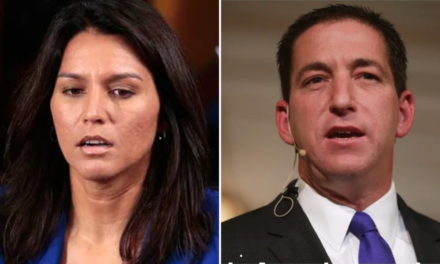A short drive from Acapulco, you can find one of the main sources of our heroin epidemic.
Not that anyone in Calvario much cares for — or even knows — of the broader debate over the drug trade. Villagers see little harm in cultivating opium. No one here uses the drug, or its derivative heroin, and the day rate for labor in the poppy fields is many times what is paid for shucking corn.
Isolation breeds a certain detachment. Calvario, though just a few miles from the state capital, is marooned an hour’s drive up unpaved mountain switchbacks littered with boulders and ruts. In the village of around 100 people, there is limited awareness of the outside world. Some farmers are not entirely clear what opium is even used for.
José Luis García, a farmer in Calvario who leases his land for opium cultivation, asked more than once what exactly it was about poppies that drove Americans so crazy. After hearing of the epidemic of addiction in the United States, Mr. García paused for a moment to reflect on the ethics of growing poppies.
“The fault is not with those who cultivate the opium,” he said. “It’s with the idiots who consume it.”
Ah, yes, this is the same rationalization you’ll get from any of the open-air heroin dealers in the Badlands of Philadelphia. If they don’t sell these kids their bundle, they’ll just get it from someone else. Nine times out of ten, this is true.
Except, I was talking to a heroin addict just last week. He’s got about eight months clean, and the turning point came when he snuck out of a rehab center dressed all in black in the dead of night and walked ten miles into Reading to score. When he couldn’t find any smack, he turned around and got back in bed unnoticed by the guards.
Two of the guys he left with were more successful, however, and after they subsequently failed a drug test and were kicked out of rehab, one of them overdosed and died.
My recovering addict acquaintance may well be alive today for the simple reason that on one particular night, no one sold him a bag of heroin.
It seems like no one in Washington County, Pennsylvania is having trouble finding someone to sell them a bag of heroin.
“It’s absolutely insane. This is nuts,” said District Attorney Eugene A. Vittone, a former paramedic who is trying to hold back the tide of drugs washing across Washington County, a Rust Belt community 30 miles south of Pittsburgh. On any day, Vittone said, the county averages five to eight overdoses, almost all from heroin. More are recorded each day in towns just over the county line.
Or, to put it another way:
On the streets here, prescription drugs are selling for about $1 per milligram, or $20 for a single dose. Heroin is much cheaper, at about $8 a stamp bag, [Rick] Gluth [supervising detective on District Attorney Eugene A. Vittone’s drug task force], said. It is also much more potent than the heroin of previous eras, [Neil] Capretto [an addiction psychiatrist and medical director of Gateway Rehabilitation Center] said. Users often start with a single bag, but as their resistance grows, they need increasing amounts.
All of which signals more overdoses and deaths, at least until authorities can find ways to stem the demand and the supply.
“If we had a serial killer killing one-tenth as many [people], we’d have the National Guard here,” Capretto said. “We’d have CNN here every night.”
He’s not exaggerating, at all.
Here’s a recent three-day spell in suburban Pittsburgh:
By 8:42 — 69 minutes after the first report — a county of slightly more than 200,000 people had recorded eight overdoses, all believed to be caused by heroin. There would be a total of 16 overdoses in 24 hours and 25 over two days. Three people died. Many of the others were saved by a recent decision to equip every first responder with the fast-acting antidote naloxone.
The three people who died weren’t shot on live television by a deranged man, but the people who killed them were just as indifferent to any value their lives may have had.
If you give someone heroin, you’re guilty of depraved indifference at a minimum. You might as well put one bullet in a revolver and pull the trigger. And if you don’t kill them today, you’re setting up someone else to kill them tomorrow.
And, virtually no one becomes a heroin addict before becoming addicted to some other opioid first, which means that the real pusher men are the ones that give out the pain medication.
You know, doctors.
Doctors like the one that gave Sonny Mack opioids despite everyone knowing he had an addictive personality.
Sammy Mack had long had problems with alcohol and was not unknown to law enforcement authorities. But as so many others have, his sister said, he turned to heroin after treatment with narcotic painkillers prescribed for an ankle injury he suffered a few months ago. Mack’s divorce was recently finalized, she said. His four children are living with his ex-wife not far away.
Good job, doctor, you killed him. Only took a couple of months, too.
Maybe the fact that he was a well-known alcoholic whose wife was leaving him might have given you a warning sign that a prescription for powerful opioids would fucking kill him within a few months?
We can’t stem this problem by going into switchback villages in Mexico and preventing poor farmers from scraping poppies. We have to get the doctors to stop creating so many addicts.






